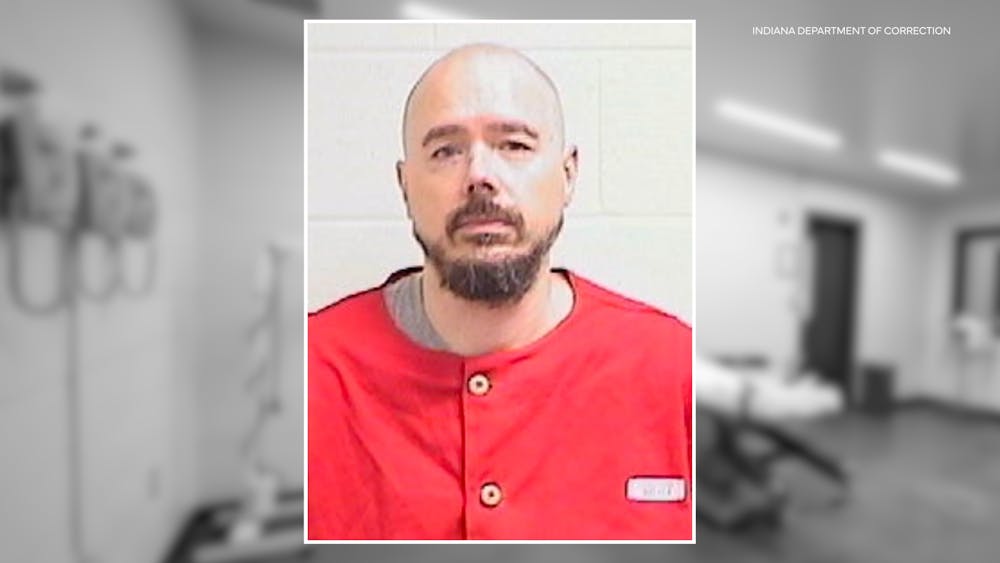MICHIGAN CITY, Ind. — Joseph Edward Corcoran, 49, was executed at the Indiana State Prison in Michigan City early Wednesday morning, according to the Indiana Department of Correction.
The process began shortly after 12 a.m. CT and Corcoran was pronounced dead by 12:44 a.m. CT, according to DOC. His last words were: "Not really. Let's get this over with."
| SEE ALSO: A look back at the history of executions in Indiana
Corcoran is the first person executed in the state since Matthew Wrinkles in 2009, who was convicted of murdering his wife and two of her relatives.
Indiana Attorney General Todd Rokita responded to Corcoran's execution, writing in a statement on X:
“Early this morning, Indiana conducted its first execution since 2009. Joseph Corcoran’s case worked its way through our judicial system and today he finally paid his debt to society as justice was provided to his victims. A jury recommended and a judge imposed a sentence of death for the senseless murders of four people. My office fought to defend that sentence and state law every step of the way, and the Indiana Department of Correction carried it out professionally.”
Corcoran was convicted by a jury in 1999 for shooting and killing his brother James Corcoran, his sister’s fiancé Robert Scott Turner, and two of their friends: Timothy Bricker and Douglas Stillwell. Corcoran lost his last appeal in the case in 2016 and has stayed on death row.
He was charged but acquitted just seven years prior in the 1992 deaths of his parents, Jack and Kathryn Corcoran, who were 53 and 47 when they were found shot to death in their home in Steuben County.
Earlier this month, the Indiana Supreme Court rejected a request to pause Corcoran's execution. Late Tuesday night, the U.S. Supreme Court also heard a last minute appeal to pause the execution, which was also denied.
Indiana Governor Eric Holcomb was the final say in granting Corcoran clemency. Holcomb ultimately rejected those calls and responded to the execution, writing:
“Joseph Corcoran’s case has been reviewed repeatedly over the last 25 years – including 7 times by the Indiana Supreme Court and 3 times by the U.S. Supreme Court, the most recent of which was tonight. His sentence has never been overturned and was carried out as ordered by the court.”
Indiana's 15 year hiatus without an execution has been largely in-part due to the absence of drugs to carry out the executions—a drug which Rokita and Holcomb said in June that the state now has in supply.
After Corocran's execution, there are now seven other inmates left on Indiana's death row, according to a database from the Death Penalty Information Center.
Benjamin Ritchie, who has sat on death row since 2002 after being convicted of shooting and killing Beech Grove Police Officer William Toney in September 2000, is the next in the waiting line.
The Indiana Supreme Court has not yet set a date for Ritchie’s execution. Ritchie’s attorneys had until Dec. 1 to file a final rebuttal to Indiana Attorney General Todd Rokita. The court will now deliberate their decision.
Under Indiana law, media is not allowed to witness state executions. It is only one of two states with such law. Only specific prison staff, a spiritual advisor of the inmate, and some of the victim's immediate family.
Indiana Capital Chronicle reporter Casey Smith witnessed the execution, but only after Corcoran added her to his witness list and the warden approved. No other media were present.
Several media organizations in Indiana have outcried the lack of transparency in the execution process with a letter signed and submitted to Governor Holcomb, according to Death Penalty Action post on X
Under Indiana law, a person may be sentenced to death only after a murder conviction, if the state can prove a list of aggravating factors. Convicted criminals who were under 18 at the time of the crime may not be sentenced to death.










